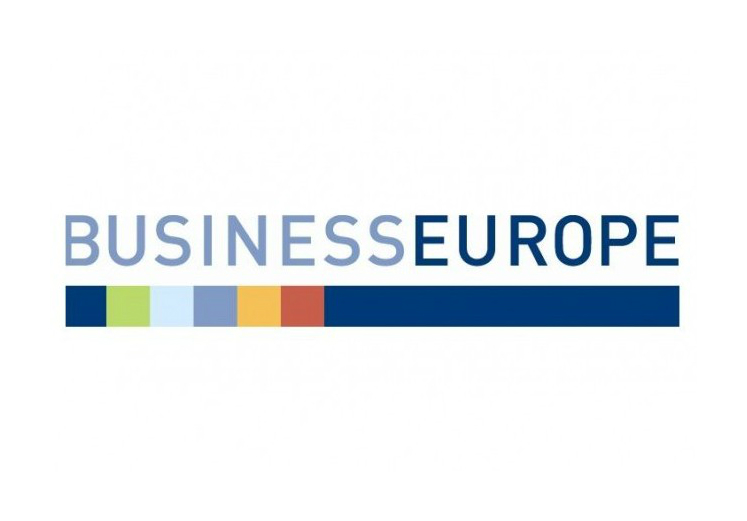|
Prime Minister Boyko BORISSOV 1, dondukov Blvd 1594 Sofia Bulgaria |
Dear Prime Minister,
Recovery in the European Union is picking up, while politically, we are more united and confidence in the European project is growing. With so many important files on the table, it is fundamental that the Bulgarian Presidency of the Council of the EU takes full advantage of the current momentum to continue gathering consensus on important files and ensuring we move forward with discussions that will be able to sustain a strong European Union in the years ahead. This is why we believe the motto chosen for the Presidency – “united we stay strong” couldn’t be better chosen.
First, there are key priorities in the Bulgarian Presidency programme that are crucial for the future of Europe. This is why we call for the following priorities to be high in the political agenda of the next 6 months:
- Make progress with discussions on the EMU: Business investment requires a safe and predictable environment, which is why completing EMU and strengthening trust in the Euro is a priority for business. We have welcomed the roadmap the Commission published in December which sets out a number of important steps towards completing EMU, and businesses will now be looking to the Bulgarian Presidency to fully implement, longstanding initiatives such as the banking and capital markets unions, as well as constructively debating the Commission’s new proposals. It is essential that the June Council will be one where concrete steps are taken forward on deepening EMU, as currently envisaged by President Tusk.
- Support reflections on the next MFF: The proposal for the next MFF will only be published in May 2018 at the earliest – and therefore towards the end of the Bulgarian Presidency. However, many of the issues for discussions are clearly identified. It would therefore be helpful if the Bulgarian Presidency supports the efforts of the Commission to advance discussions in concrete issues as the time frame for adoption the MFF proposal will be very tight – if we are to achieve an agreement before the European elections in mid-2019. Failing to agree on the proposal by then would be of serious consequences: it would very likely mean a last-minute deal, followed by serious delays in the start of programmes in 2021, and a lost year in investment by the EU budget – as it was the case in 2014.
- Maintaining a high profile for an EU industrial strategy: While we had a first important step with the Commission Communication last September, we must ensure this topic remains high in the agenda and that both the EU and Member States provide an important contribute in building a long-term vision for the future of European industry. We must ensure we define a structured way forward and we call on the Bulgarian Presidency to ensure this topic continues to deserve the necessary commitment and attention.
Second, it is crucial to continue developing our Single Market in line with the Leaders agenda. We note with concern rising risks of fragmentation of the Single Market due to overregulation, the re-introduction of various obstacles in Member States and insufficient enforcement of EU rules. Focus must be on legislation only when necessary with clearer rules, removing remaining obstacles and making sure that existing rules work in practice. This is fundamental to make Europe more competitive globally. The goods package is an important proposal that must be given great attention.
Fragmentation of rules is also a great concern for the Digital Single Market which is borderless by nature and should know no bounds. A renewed emphasis is needed to urgently complete the Digital Single Market, which means legislating where real market failures exist, for example, to enable the free movement of data in the EU. Yet, not every technological advance requires legislation as in some instances, it could stifle innovation and investment. With regard to data ownership, access and liability, the existing legal frameworks and private contracts already answer these emerging data economy questions. A flexible and robust approach is required in these highly intricate situations. We count on the Bulgarian Presidency to ensure this topic remains high in the agenda and that the free flow of data proposal is treated as a matter of priority.
Third, it is key for the EU to promote an ambitious trade policy. We must stand strong against protectionist tendencies worldwide and within the EU. We have to stay competitive to retain and be able to attract talents and investments globally. The EU must not refrain from global competition but it must strengthen the overall companies’ ability to face this global competition, defend and prioritise the interests of European citizens and companies. This includes shaping globalisation according to our common values and negotiating comprehensive modern trade agreements leading to strengthened international cooperation and a liberal rule-based global trading system. These basic principles must be upheld in all legislative measures and all decisions taken at EU and national levels.
Fourth, we must ensure Europe remains one of the best places in the world to live and work, by taking forward the necessary economic and social reforms. Economic and social challenges must be addressed in a coherent way, recognising that economic progress is the basis for social well-being. To defend our social model, we must modernise it and to be able to finance social safety nets, we must be competitive. We need to lift rigidities in labour law, reduce excessive non-wage labour costs, address skills mismatches, promote mobility and legal migration, and remove unemployment traps.
At annex, you can find further details about our priorities for the Bulgarian EU Presidency. I look forward to working constructively with you and the different members of your government during the next six months in order to build a strong European Union answering companies’ and citizens’ concerns about the future.
Yours sincerely,
Emma Marcegaglia
President
Markus J. Beyrer
Director General









